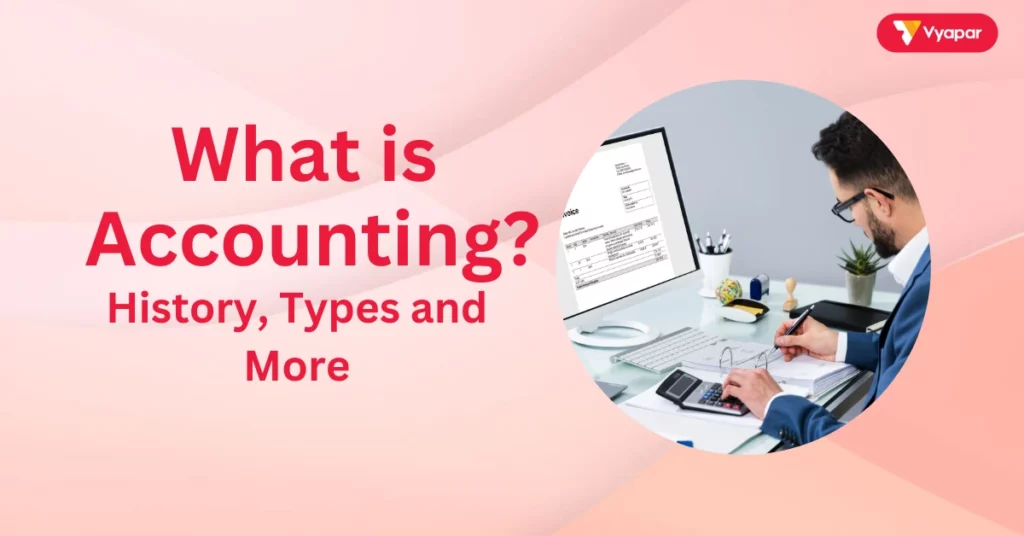What is Auditing in Accounting? Explanation & More
Estimated reading time: 9 minutes

In accounting, auditing means reviewing a business’s financial records. This ensures they are accurate and follow the rules and laws.
Think of auditing as a health check for a business’s finances. Audits involve looking at financial transactions, and tracking where money came from and where it went. This process makes sure the business’s records are reliable. This helps banks, investors, and customers trust the company more.
Key Takeaways of Auditing in Accounting
- Auditing verifies the accuracy of financial records.
- It ensures that financial information meets legal requirements and accounting standards.
- Audits help prevent fraud, detect errors, and confirm that internal controls are working.
- They assure stakeholders that the company’s financial information is trustworthy.
Understanding Auditing in Simple Terms
An audit is like a health check for a company’s finances. It involves checking the records of money coming in and going out. This ensures that we document everything correctly. Two main types of audits exist:
- Internal Audit: This person works inside the company to check financial records and internal controls. They make sure that systems are efficient and that there are no mistakes or fraud. Internal auditors also conduct performance audits to see if the business is using resources wisely.
- External Audit: This is an independent person or firm outside the company. They review financial records to make sure they meet legal and tax return requirements. An external auditor checks the company’s financial reports to confirm that they’re correct, without any bias.
Types of Audits in Accounting
Audits can have different goals depending on what they’re checking. Here are some main types:
- Financial Audit: This common audit checks if financial statements (like balance sheets and income statements) are accurate. The auditor ensures that all personnel record financial transactions correctly.
- Compliance Audit: This audit checks if the business is following specific laws and regulations. This includes tax laws, industry standards, and internal policies.
- Operational Audit: Reviews how well the business’s operations work and helps find ways to improve.
- Information Systems Audit: Looks at the IT systems that handle financial data, ensuring they are secure and accurate.
- Forensic Audit: Used to investigate if there is any fraud or illegal activities within the business.
Each type of audit checks different parts of the business to make sure things are running smoothly and correctly.
Importance of Auditing in Accounting

Auditing plays a crucial role in helping a business stay on track. Here’s why it’s so important:
- Builds Trust: An audit reassures banks, investors, and others that the business’s financial information is true and reliable.
- Improves Accuracy: Auditors check every detail, which helps to find and correct any mistakes in the financial records.
- Follows Rules: Auditing ensures that the business follows laws and rules, reducing the risk of penalties.
- Prevents Fraud: Regular audits make it harder for anyone in the business to hide any fraud or incorrect entries.
- Boosts Efficiency: Audits can highlight areas where the business can save money or improve its processes.
How Audits Are Done in Accounting

Audits follow a step-by-step process to make sure everything is checked properly. Here’s how it usually works:
- Planning: The auditor meets with the business owner or team to understand what the audit will cover and to set clear steps.
- Collecting Information: Auditors collect and review financial records, invoices, bank statements, and other important documents.
- Testing Controls: This step involves checking how well the company’s systems work to prevent mistakes and fraud. For example, they might test if there’s a system to track cash correctly.
- Reviewing Financial Statements: The auditor reviews the financial reports, such as the balance sheet and income statement. They verify if these correspond with the records.
- Creating an Audit Report: After checking, the auditor writes a report on their findings. This report indicates whether the records are correct and identifies any needed improvements.
Examples of Auditing in Business
Here are some simple examples to show how auditing works in real life:
- Stock Check in a Store: An auditor may count the items in a shop to see if the records match the actual stock. This makes sure that the inventory records are correct.
- Cash Handling Audit in a Cafe: The auditor will check if the cash reported matches the money collected. This helps prevent mistakes in cash management.
- Compliance Check for a Clinic: An auditor can check patient billing to ensure the clinic follows healthcare billing rules. This helps prevent legal problems.
These examples show how audits help businesses stay accurate and compliant.
Different Categories of Audits
Audits fall into two main categories:
- Internal Audits: Conducted by the business’s own team to find ways to improve and make things run better.
- External Audits: Experts from outside the company checked its records. They wanted to make sure the records are accurate and reliable for investors, banks, and the public.
Both types of audits are useful, as they help the business maintain honest, clear, and organized financial records.
How Vyapar App Can Help with Auditing

Vyapar App makes managing audits easier for small businesses. This app helps by organizing records and automating entries, which makes audits faster and more accurate. Here’s how Vyapar helps with auditing:
- Automatic Record-Keeping: Vyapar keeps track of sales, purchases, and payments in real-time, reducing errors in records.
- Easy Reports: Vyapar creates financial reports, such as income statements and cash flow statements. Auditors can use these reports for quick checks.
- Inventory and Asset Tracking: Vyapar tracks stock and assets. This makes it easy for auditors to check items and their values.
- Compliance Made Easy: Vyapar organizes records according to rules and tax requirements, which makes audits go smoother.
- Fewer Mistakes: By automating entries, Vyapar reduces human errors, keeping financial data accurate and consistent.
With Vyapar, small businesses can manage their records better, stay ready for audits, and ensure everything is in order.
Are you a Business Owner?
Take your business to the next level with Vyapar! Try free!
Try our Android App (FREE for lifetime)
FAQ’s
Auditing is a check of a business’s financial records to make sure they are accurate and follow rules. It helps prevent mistakes and fraud.
Auditing shows that the company’s financial records are reliable, builds trust, and ensures the business follows rules.
Types include financial audits, compliance audits, operational audits, information systems audits, and forensic audits. Each has a specific purpose in keeping the business accurate and efficient.
Vyapar organizes and automates records, generates reports, and tracks stock, making it easier for businesses to prepare for audits.
The organization’s staff conducts in-house audits to enhance procedures. External specialists perform independent audits to confirm records for stakeholders.
Auditors examine records, check controls, and gather proof to confirm that financial statements are correct.
Related Posts:









